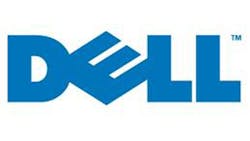Dell Boosts Buyout Offer on Condition of Voting Process Change
NEW YORK - Michael Dell and his investor allies modestly boosted their buyout offer Wednesday for the struggling computer giant he founded and asked the board to change the method for shareholder approval.
The move came amid a hotly contested battle over the bid to take Dell (IW 500/24) private, a plan opposed by key shareholders as undervaluing the former No. 1 computer maker.
The new offer from Michael Dell and the private equity firm Silver Lake Partners was increased to $13.75 per share, from $13.65 a share, on condition of a change in the shareholder vote process.
The proposal seeks an approval process that would require a majority of shares voted, instead of a majority of all outstanding shares not affiliated with Michael Dell.
A statement from Michael Dell and Silver Lake said an estimated 27% of unaffiliated shareholders had not yet voted, suggesting that the plan could fail under the previous procedures.
"The presumption that these shares should be treated as if they had voted against the transaction is patently unfair," the statement said.
The new bid adds some $150 million to the $24.4 billion offer, according to a letter to shareholders.
A shareholder meeting set for Wednesday after a postponement last week was rescheduled for Aug. 2, the company said.
"Our Best and Final"
The letter said the new offer was "our best and final proposal" and set a deadline of 2200 GMT Wednesday for the board to endorse the proposal and new voting procedure. The deadline later was extended to August 2.
"We are not willing to discuss any further increase in the merger consideration, nor are we willing to increase the merger consideration to $13.75 per share without the change to the Unaffiliated Stockholder Approval requirement," the letter said.
"We believe that $13.75 per share is a full and fair price... The will of the majority of the unaffiliated shares voting on the transaction should not be thwarted by an unfair standard that counts unaffiliated shares not voting as 'no' votes."
The move came amid stiff opposition to the buyout by some shareholders who argued that Michael Dell's bid undervalued the former No. 1 computer maker.
Opponents have been galvanized by corporate raider Carl Icahn, with some other institutional investors also opposing the effort. The Wall Street Journal last week estimated that holders of at least 30% of Dell shares opposed the plan.
Michael Dell and his affiliates hold some 15.6% of Dell shares but cannot participate in the shareholder vote. Icahn and an investor group that has backed him, Southeastern Asset Management, together hold some 13%.
Icahn Criticizes Latest Move
Icahn and Southeastern harshly criticized the latest move and noted that it increased the value by just 0.73%.
"In today's latest installment of the 'Desperate Dell Debacle,' Michael Dell/Silver Lake have asked the company to change the rules of the game in a transparent attempt to force their freeze out transaction across the finish line despite the vote of its stockholders," the statement said.
"To change the rules at the last minute is outrageous... You can't get rid of this one provision that is designed to protect the interests of non-Michael Dell stockholders. Of course, this is precisely what Michael Dell and Silver Lake are today trying to do."
Icahn has proposed an alternate plan that would pay $14 per share for up to 71% of Dell stock, and recently sweetened the deal by adding one warrant for every four Dell shares, entitling the holder to one share of Dell at $20.
The buyout aims to take Dell private to allow the company to restructure in a rapidly changing tech landscape. While Dell is flush with cash, it has been losing market share and has failed to make an impact in the growing area or mobile computing.
Jon Ogg at 24/7 Wall Street said the small increase in price was unlikely to change any votes.
"An increase of a mere dime and with new conditions attached just is not a good deal," Ogg said.
Dell, once the world's biggest PC seller, has fallen behind rivals Lenovo and Hewlett-Packard (IW 500/9) and faces pressure because of slumping computer sales. A recent survey showed worldwide sales of personal computers fell for a fifth consecutive quarter in the April-June period.
Dell has failed in smartphones and tablets, but has seen some success in software and business services through its acquisitions.
Copyright Agence France-Presse, 2013
About the Author
Agence France-Presse
Copyright Agence France-Presse, 2002-2025. AFP text, photos, graphics and logos shall not be reproduced, published, broadcast, rewritten for broadcast or publication or redistributed directly or indirectly in any medium. AFP shall not be held liable for any delays, inaccuracies, errors or omissions in any AFP content, or for any actions taken in consequence.
